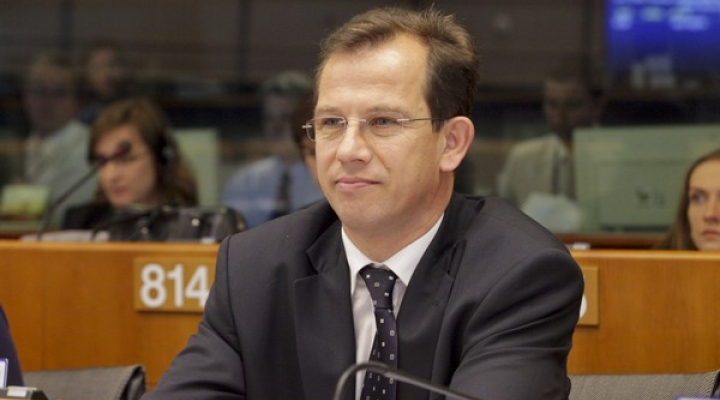European Higher Education Area – good will is not enough, high level decisions are needed
MEP Doris PACK (german, EPP) held a public hearing in Brussels on the 5th of October about the situation of the European Higher Education Area in the Culture and Education Committee of the European Parliament.
The hearing featured the presentation of the EP’s Structural and Cohesion Policy Department’s report entitled “The Bologna process: evaluation and perspectives”. Among speakers featured Professor Giunio LUZZATTO, Italian specialist in the Bologna process, Gerry SULLIVAN, president of the Irish Higher Education Authority, Professor Markku MATTILA, president of the Finnish Academy and Michel FEUTRIE, secretary of EUCIS- LLL. MEP Csaba Sógor is not a member of CULT, but attended the hearing due to the importance of the subject.
Bologna started a dynamic process that has been evolving since the beginning. The bi-annual evaluation through meetings of ministers proved to the successful: the working group in charge of agenda-setting and monitoring proved to be very effective.
It is the merit of the Parliament and the Council that the actions of the member states and the European Commission are being coordinated. Results and problems of the Bologna process have a large literature, it is impossible to summarize them – said the speakers.
Professor LUZZATO considers that European higher education has undergone a fundamental change in the past 10 years. The student exchange program Erasmus has been functioning since 1999 and attempts have been made to acknowledge diplomas, although national higher education systems were not in concordance. According to Luzzato this has all changed, it is not a mere figure of speech to talk about the European Higher Education Area, but a concrete reality.
Professor FEUTRIE presented the recommendation of the 2009 Leuven Declaration. The Declaration provides guidelines to achieve the yet unreached Bologna targets and urges new priorities for the next decade: to strengthen the social dimension, provide equality of chances in access to higher education and finishing studies, pursuit the evolution of the national frameworks to assure the lifelong learning process .Due to their applicability, labor markets want high level education and transversal skills, but the education system needs to remain centered on students nevertheless.
Up to this point, member states of the Bologna space have taken different courses of action with regard to the equality of chances. In order to achieve this, not only economic principles need to be taken into account, but the situation of minorities or the informal forms of education as well. There are great differences between member states with regard to financing as well, they do not have a common direction and many member stated do not have “socially ethical” higher education systems.
It is obvious that the issue of financing is the most important even if levels of financing have declined in the last decade in many member states – summed professor Mattila.
Professor Michel FEUTRIE placed emphasis on the principle of applicability. Taking into account that the three year bachelor’s degree has become a general practice in almost all member states, the improvement of the chances of students should be the priority of the member states and the EU.
The conclusion of the hearing was that the Bologna process has had a number of outstanding results and the European Higher Education Area looks towards a bright future although better cooperation between the political actors/participants (EP, EC leaders of the member states and higher education institutions) would have yielded better results.
The European Higher Education Area is regulated by intergovernmental agreements that have non-EU member states amongst its signatories. Many agreements and connections have been made based on the good will of the political actors, but good will is not enough, decisions need to be made at the highest levels of the institutions – warned the speakers.











